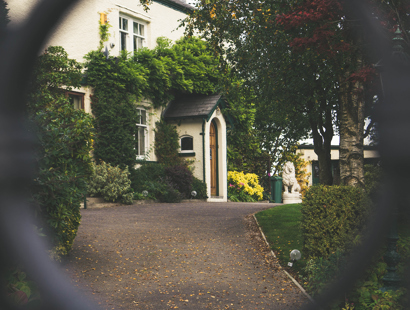
Changing an inheritance—deeds of variation
Private client associate, Harriet Shore, discusses the flexibility and tax benefits of deeds of variation.
Inheriting assets from a loved one is often accompanied by a mix of emotions, from sorrow to gratitude. However, what many people don't realise is that there are ways to vary an inheritance to better suit your unique circumstances. Enter 'deeds of variation': a valuable tax planning tool that allows you to make changes to an inheritance without the hassle of complex legal procedures.
What is a deed of variation?
A deed of variation is a legal document that enables beneficiaries of an estate to alter the distribution of assets, without the person who is re-directing their inheritance suffering adverse tax consequences. This can be incredibly useful if the original terms of the will do not align with your current financial situation or family needs.
Why consider a deed of variation?
Tax efficiency
One of the primary reasons for opting for a deed of variation is to minimise potential inheritance tax liabilities. By redistributing assets among beneficiaries, you can potentially reduce the overall tax burden, leaving more for your loved ones.
Other tax advantages would be ensuring that all applicable reliefs and exemptions are claimed on the estate or to keep any increases in value since the date of death outside of the inheritance tax charge. Finally, in situations where a double-death has occurred in quick succession, the personal representatives of the second deceased could re-direct the inheritance from the first deceased to prevent those assets being subject to inheritance tax twice.
It can also be used as a tool for a beneficiary’s tax planning, enabling them to redistribute wealth to other individuals, if they do not need the funds themselves, without it having an effect on their own personal taxation.
Family dynamics
Family circumstances can change over time. A deed of variation can help address situations where some beneficiaries may need more support than others, ensuring a fair and equitable distribution. From our experience, often parents may wish to re-direct their inheritance from grandparents directly to grandchildren, to avoid inflating the value of their own estate for inheritance tax purposes.
Charitable donations
Deeds of variation can be used to redirect a portion of the inheritance to a charitable cause, leaving a lasting impact on society. If more than 10% of the chargeable estate is re-directed to charities it could mean that the estate will benefit from the reduced rate of inheritance tax (36% instead of 40%).
Beware however, that you only have two years from the date of death to create a deed of variation in order for it to be tax efficient.
In conclusion, deeds of variation are a valuable tool for anyone looking to redirect an inheritance. They offer flexibility, tax benefits, and the opportunity to adapt to changing family dynamics. Remember, while deeds of variation are designed to be straightforward, consulting a solicitor is the best way to navigate this process successfully. This will ensure your loved one's legacy aligns with your current needs and wishes and also effective compliance with all legal requirements.

Private client legal news—October 2023
Read the recent updates and hot topics from across the private client team.
Find out how our specialist will solicitors can help
If you would like to speak with a member of the team you can contact our private client solicitors; Holborn office +44 (0)20 3826 7522; Kingston office +44 (0)20 3826 7529 or Putney office +44 (0)20 3826 7515 or complete our form.





